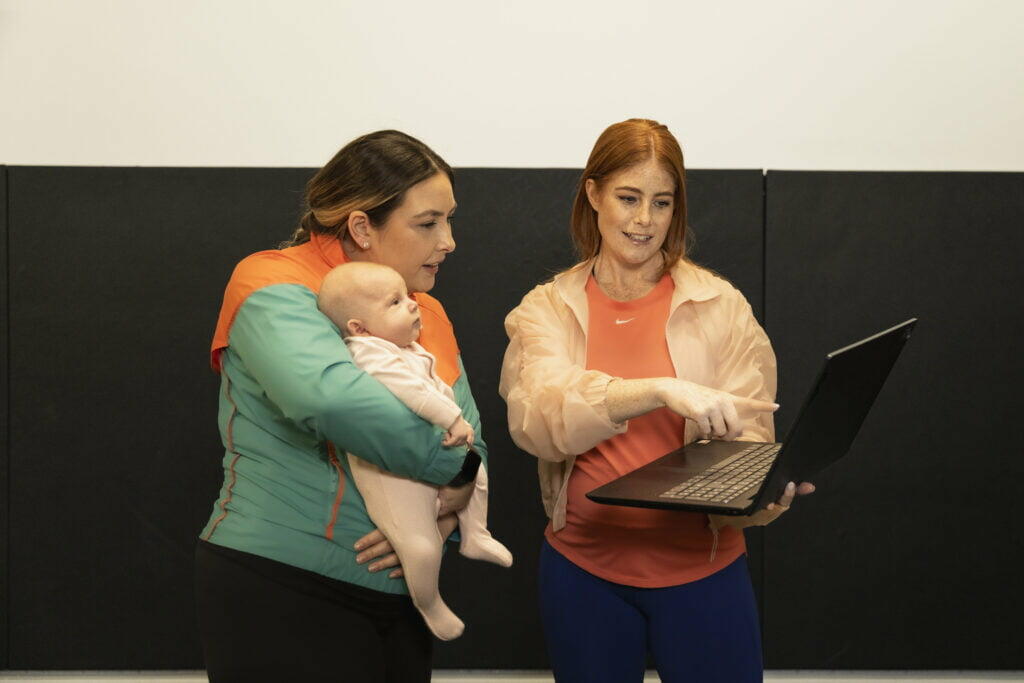No products in the cart.

It is safe to exercise all the way through your pregnancy, including the first trimester. It really helps with the nausea and fatigue.
You can choose to purchase 1, 2 or 3 of the packages available on our website. Each are available up to 1 year and are appropriate every step of the way through your pregnancy.
Absolutely not, Niamh specializes in all levels of ability, in fact getting started is the most difficult for some people, however, it is at this time when most learning take`s place. You are learning about the changes in your body. Niamh has tailored the workouts to suit everyone's ability.
Upon purchase you will receive a link to you remain. You will have access to a 12 downloadable exercise videos for each trimester. You do not need equipment however can use resistance bands or lights should you wish to.
No, using weights is optional with each workout.
Yes, once you consult with your GP ahead of engaging in any new regime.
It is safe to exercise with twin pregnancies but it is more challenging on the body. Therefore, we recommend women join classes early and to consider our online Finding relief classes as the pregnancy progresses. We are here to support and guide you particularly with twin pregnancies, so regular communication is encouraged.
We are based in South Dublin, Tallaght, and have all necessary gym equipment. Niamh coaches to all abilities 1-1 at a cost of €80 pp.
Buying an online package, first you will be asked to input your personal information followed by your card details. We have Stripe, Apply pay and Paypal available.
Each trimester costs €120. With a purchase of 2 packages you will receive a bundle deal buy 2 get €40 0ff and buy 3 get €60 off.
See coach Niamh’s profile (add link to bio) (child protection 2021 & Garda vetted 2024)
During the first trimester, avoid high-impact exercises, activities with a high risk of falling, and exercises that involve lying on your back for extended periods. Also, steer clear of contact sports and activities that involve significant jolting or rapid changes in direction.
Yes, if you were a runner before pregnancy and your pregnancy is uncomplicated, you can continue running, but you may need to modify your routine. Listen to your body, reduce intensity as needed, and consult with your healthcare provider for personalized guidance.
For most women, light exercise like walking can be started as soon as it feels comfortable after childbirth. However, more intense exercise should only begin after clearance from a healthcare provider, typically at the 6-week postpartum check-up.
Gentle activities like walking or prenatal yoga can sometimes help manage morning sickness. Staying hydrated and exercising in a cool, well-ventilated environment may also help alleviate nausea.
Stop exercising and consult your doctor if you experience any of the following: vaginal bleeding, dizziness or feeling faint, increased shortness of breath, chest pain, headache, muscle weakness, calf pain or swelling, uterine contractions, or decreased fetal movement.
Wait until you have approval from your healthcare provider before resuming exercise after a C-section, typically around 6-8 weeks postpartum, depending on your recovery.
Choose shoes with good arch support, a firm heel, and non-slip soles. Make sure they are comfortable and fit well, considering any changes in foot size due to swelling.
Yes, exercise has been shown to help reduce symptoms of postpartum depression due to the release of endorphins, which improve mood. However, it should be part of a comprehensive treatment plan discussed with a healthcare provider.
Pelvic floor exercises, or Kegels, strengthen the muscles that support the uterus, bladder, and bowels. Strengthening these muscles during pregnancy can help prevent incontinence and potentially ease labor and recovery.
Wear supportive sports bras, maternity activewear for comfort, shoes with good cushioning, moisture-wicking fabrics to manage sweat, and layers to adjust to changing body temperatures during workouts.
Yes, moderate weightlifting is safe during pregnancy if done with proper form and technique. Use lighter weights and avoid lifting weights overhead late in pregnancy. Always consult with a healthcare provider before starting or continuing any weightlifting routine during pregnancy.
Aim for at least 150 minutes of moderate-intensity aerobic activity each week, as recommended by the American College of Obstetricians and Gynecologists, spread throughout the week.
Stay hydrated, wear loose and light clothing, avoid the sun during peak hours, and exercise in air-conditioned or shaded areas to prevent overheating.
Increase intensity gradually and only within the limits recommended by your healthcare provider. Monitor your heart rate, avoid becoming overly fatigued, and stay within a comfortable range of exertion.
Squats, leg lifts, and side-lying leg lifts are great as they help strengthen the legs and glutes while providing stability to the pelvic area. Avoid deep squats and any exercise that causes discomfort.
Regular, moderate exercise can help reduce the risk of gestational diabetes, preeclampsia, and cesarean delivery by maintaining healthy blood pressure and blood sugar levels.
Diaphragmatic breathing and paced breathing can help reduce stress and improve oxygenation for both the mother and the baby. These exercises also prepare you for labor by teaching you how to effectively manage contractions through breathing.
Keep a journal or use a fitness app tailored for pregnancy. Record the type of activity, duration, frequency, and how you felt during each session to track your progress and adjust as needed.
Yes, using a treadmill during pregnancy is generally safe for most women who were already engaging in aerobic exercise before pregnancy. Treadmills provide a controlled environment where you can maintain your fitness and manage your pace and incline safely.
Regular exercise during pregnancy can increase your cardiovascular fitness, which improves circulation and oxygen flow to the fetus, contributing to healthier fetal development.
No products in the cart.